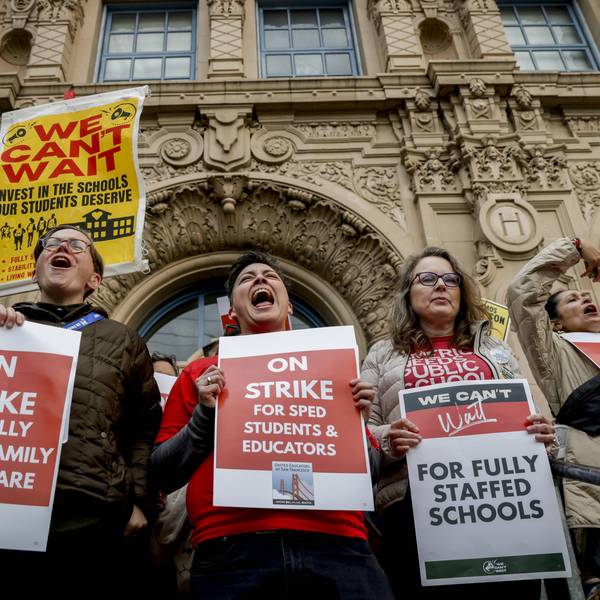To this day, I have yet to meet a person incapable of naming a teacher who made an impact on their life. No matter if they attended an under-resourced or well-off school, nearly everyone has had a teacher who made them believe in themselves, taught them to love a subject they thought they were terrible at, or opened up their view of the world.
Whether it was the teacher of my Pastor Bernard in Oakland who taught him to read and write through lived experiences rather than textbooks; or my fiancé’s who recognized her potential and fast-tracked her into more advanced courses; or my history teacher who helped me believe in my abilities and cultivate my love of social studies—teachers change lives. They deserve to be paid fairly for their impact on all of us.
Teachers—alongside emergency responders, doctors, and the military—represent a profession that is critical to the lifeblood of society. Yet unlike these other professions, which provide sustainable salaries, our nation gives thanks to our teachers with a week of appreciation. Even then, the burden of that thanks is often placed on our kids or parents to bring them gifts.
The problem is not with our children bringing tokens of thanks; the problem is with the policies we have allowed to underpay teachers, and thus, undercut the entire value of the teaching profession.
Now this is not to discredit those gifts. I still have the homemade gifts from my students when I was a teacher in Hawai’i. The problem is not with our children bringing tokens of thanks; the problem is with the policies we have allowed to underpay teachers, and thus, undercut the entire value of the teaching profession.
We must do more than take a week to say thank you. We must pay teachers for the work they do to support our society. The evidence is clear that we have been failing in this regard.
Even before the pandemic made teaching even more difficult, teachers were leaving the classroom at harrowing rates. More than half cite low compensation as what is driving them out the door. In California, which has the largest number of public school students in the US, 80% of districts reported a shortage of qualified teachers in 2017-2018. The problem is compounded by the fact that we can’t fill these spots with new teachers as enrollment in teacher education programs fell by 35% between 2009 and 2014.
Teachers are so undervalued in America that 62% of parents do not want their students to become teachers, citing low-teacher salaries as the number one reason why.
We have the power to show teachers that they matter. This starts by paying them a minimum nationwide salary of $60,000. There is a bipartisan bill in congress right now that can help make this a reality. We should not be a society where the correction officer who is responsible for keeping people in jail gets paid more than the teachers who can help keep the kids out of jail.
While paying teachers a minimum national salary of $60,000 is far from the silver bullet that will fix teacher shortages, it is an integral improvement that can help demonstrate to teachers that they matter and are deeply valued.
Let’s make Teacher Appreciation Week mean something more. Let’s use the week as a time to call on Congress to pass meaningful legislation that shows just how much we support and appreciate teachers.




